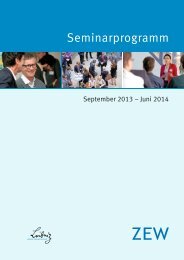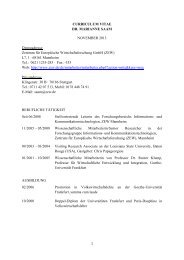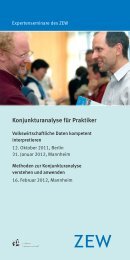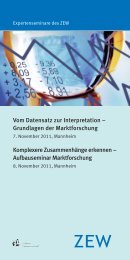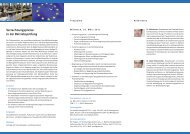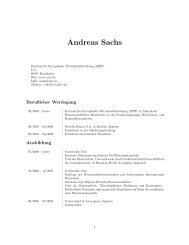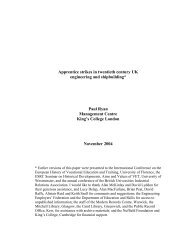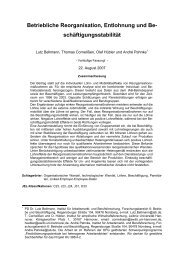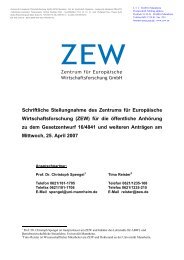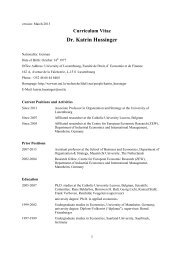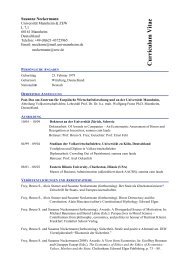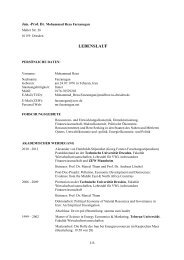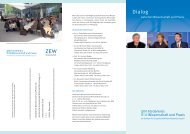Does Alma Mater matter? Evidence from Italy*
Does Alma Mater matter? Evidence from Italy*
Does Alma Mater matter? Evidence from Italy*
You also want an ePaper? Increase the reach of your titles
YUMPU automatically turns print PDFs into web optimized ePapers that Google loves.
4. Results<br />
In the first step regressions (REPORT IN THE APPENDIX), we fit<br />
individual earnings and employment probabilities separately by gender on 411<br />
college by field of study dummies, individual experience, experience squared,<br />
number of siblings, cohort of birth dummies, type of job (whether the current<br />
job is part time or full time), dummies for additional years in college after the<br />
required years, dummies for the region of current residence, individual<br />
graduation marks – relative to the highest attainable mark – type of school<br />
before college, graduating marks in upper secondary education, family<br />
background – measured by the education and occupation of both parents when<br />
the individual was 14 years of age – and interactions between education before<br />
college and family background. The maintained hypothesis is that performance<br />
at school before college, family background and their interactions fully capture<br />
unobserved individual ability, which affects earnings as well as selection into<br />
employment.<br />
4.1 College effects on wages and employment<br />
We interpret the estimated coefficients of the 411 dummies as the net<br />
impact of college and field of study on individual earnings and employment<br />
three years after graduation. Under our maintained assumption, these<br />
estimates are consistent. We distinguish the net <strong>from</strong> the gross impact,<br />
because the college and field of study can affect some of the controls, such as<br />
labour market experience, performance in college, type of job, region of<br />
residence and actual time to complete the degree. We also compute the gross<br />
impact of college and field by re-estimating the first step regressions after<br />
excluding such controls. To save space, we present some results based on the<br />
gross effect in the Appendix.<br />
The region of residence three years after graduation does not necessarily<br />
coincide with the region where the college was located, as individuals migrate<br />
to the areas of the country where they can locate better matches. Table 4<br />
illustrates the mobility flows across the four macro areas of the country. As<br />
13



